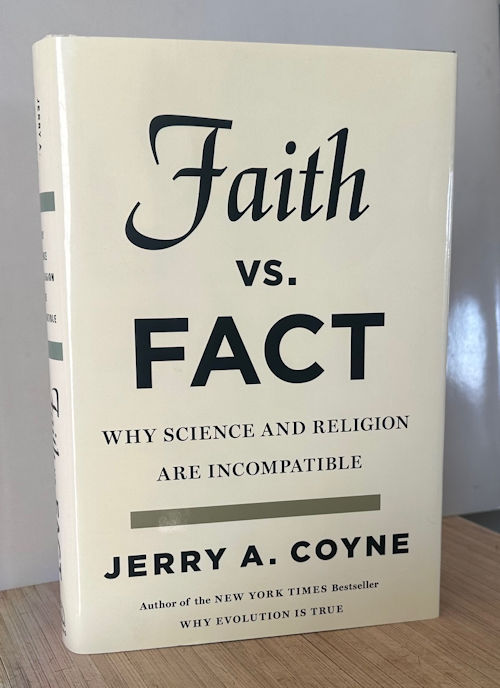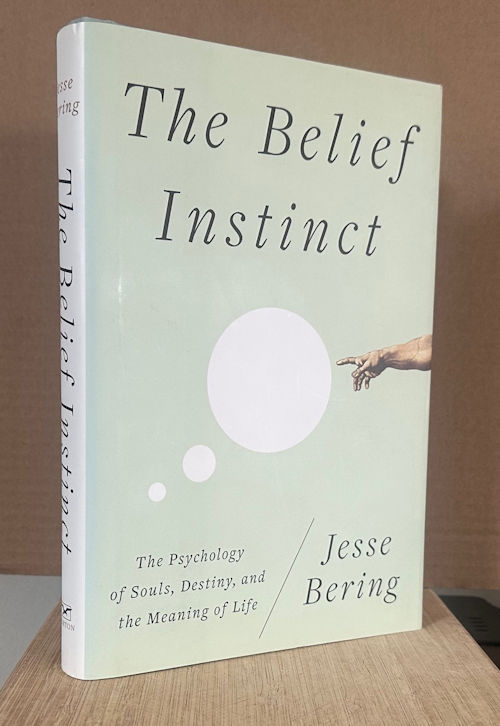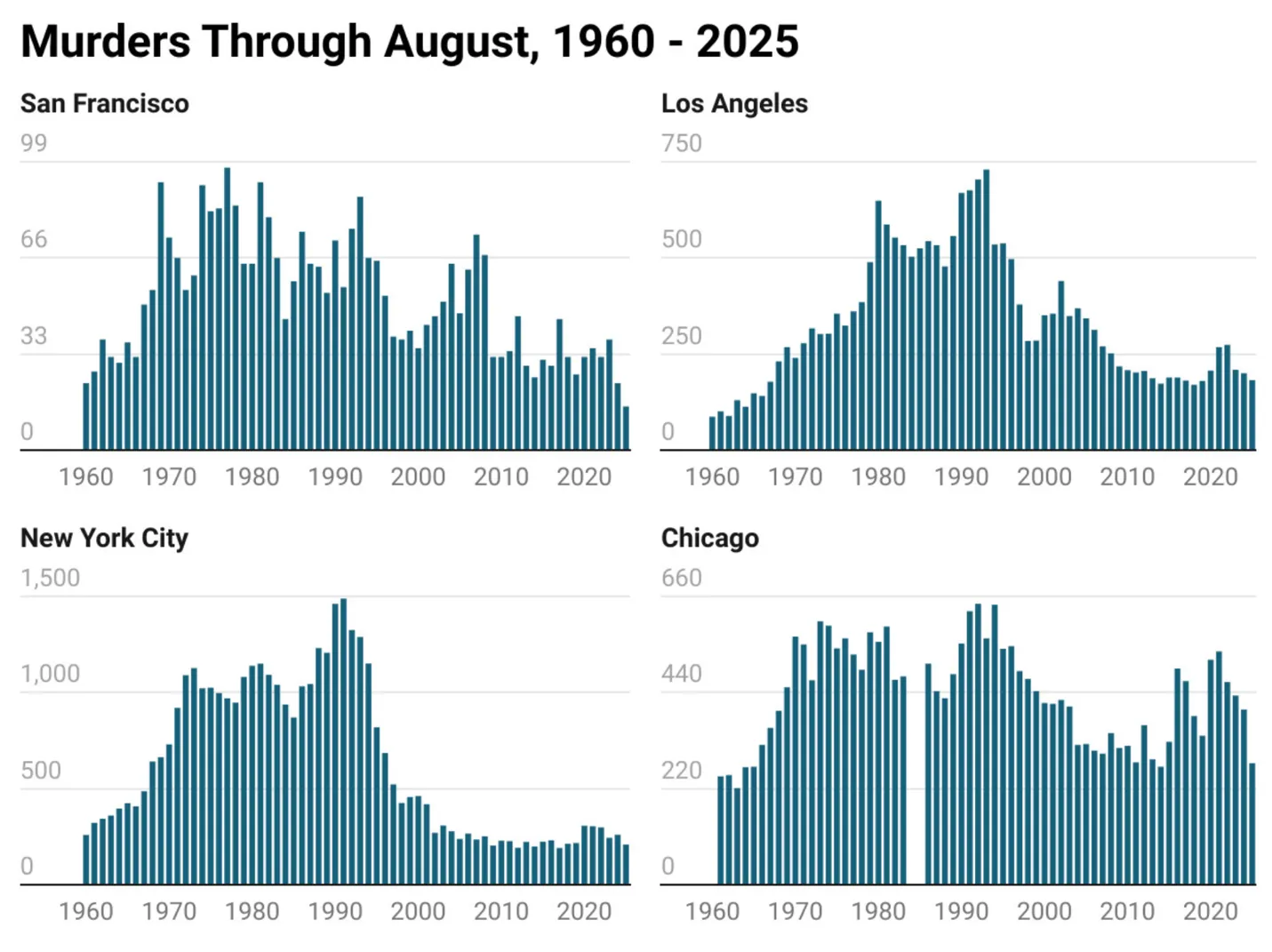Subtitled “Why Science and Religion are Incompatible”
(Viking, May 2015, xxii + 311pp, including 46pp of acknowledgements, notes, references,and index)
Summary: Chapter 3: Why Accommodationism Fails
This chapter explains why you can’t have your religion and your science too. Trying to do so leads to cognitive dissonance.
Reasons people would want to do this include the belief that religion is good for society; by taking deism to be true; by supposing that all searches for truth must be compatible; by watering religion down to be mere ‘spirituality’; that passages in scripture anticipate scientific findings. Stephen Jay Gould’s NOMA, non-overlapping magisterial, was a prominent attempt at accommodationism, but it failed along these grounds.
Science does not limit itself to ‘natural’ phenomena, and has studied things that could have produced evidence of the supernatural, and conspicuously has not. Scripture could have included revelations about information unknown to humans at the time they were written (e.g. about the planets, or DNA), and did not. Most religious people say nothing would convince them to abandon their faith. And often for practical, social reason — doing so would upend their life and isolate them from their family and community. (I point I’ve made several times.)
The problem with miracles is that they have no corroboration. As Hume proposed, all miracles are more likely fraud, error, or delusion. [[ Not a Coyne topic, but the way the Catholic Church identifies “saints,” as the one just recently, is the essence of blinkered and motivated thinking. ]]
Author considers three test cases where science might seem to undermine religious beliefs. Adam and Eve: Evolution and genetics show the story to be nonsense; many believers accept the story merely as metaphor. Some do not, e.g. the Catholic Church. Mormonism: It makes claims about tribes from the middle east coming to America 2600 years ago, and simply rejects DNA studies as meaningless. Theistic evolution, the idea that evolution was ‘guided’ by God: but science doesn’t need the premise; people resort to it to save themselves from the idea that morality arose through natural selection. [[ Which many other books have explained how it has. ]]
Nor can the religious depend on the idea that the evolution of humans was inevitable (as if built into creation by God). There are examples of evolutionary convergence (e.g. eyes) but other examples where it did not but might have. Evolution is contingent; re-run cosmic history and humans might well never have evolved.
Similarly, the history of life shows many dead ends [[ most species that ever lived are extinct ]]. Why would God direct that? Theological rationales amount to special pleading.
Theistic evolution is an unnecessary add-on driven not by evidence but by the emotional needs of the faithful.
Comments
There *is* cognitive dissonance between people wanting to cling to their faiths — if only for social reasons — and the reckoning of what is real as determine by science and expressed in technology, and the world we live in. I could expand, but I think I’ve been expanding on this theme for years, on this blog. Coyne’s book isn’t telling intelligent people things they don’t already know.
Raw Notes: Ch3, Why Accommodationism Fails
Acc. (accommodationism) is a solution to the cognitive dissonance of those who accept science but cling to religious myths. Some of these author calls ‘faitheists’, who realize religion is false but see it as good for society (p98t). One motive for acc is to be nonthreatening in the fight against creationism.
Varieties: Logical, i.e. pure deism, that there could be god that never interferes with the universe; rare.
Mental: the idea that since many people seem to embrace both religion and science, they *must* be compatible. Examples are Francis Collins. But that such people hold two worldviews in their mind, a co*existence* that is not the same as compatibility.
Syncretism: an attempted unification, especially by stretching the idea of religion to be mere ‘spirituality’. Einstein’s famous quote (p101m) wasn’t about what most people think of as God; it was more a sort of pantheism. Similarly, Owen Gingerich p102m and his awe at the stars. That’s a very weak kind of religion, but people like Elaine Ecklund keep at it (via Templeton), doing surveys to demonstrate various levels of ‘spirituality’ among scientists, as if to equate that with religious belief.
Some argue since both religion and science aspire to be truth, they *must* be compatible; truth cannot contradict truth. Thus scientific creationism, which twists evidence of an ancient earth to match the biblical story, with absurd results. (Examples of their arguments p104). Author taught a course about it… [[ the problem here is that the claims of different religions contradiction each other, so they *can’t* all be true. ]]
Similarly Muslims insist the Quran is literally accurate, and cite certain passages as anticipating modern science…very vaguely. P105
The most prominent example of acc is Stephen Jay Gould’s NOMA – nonoverlapping magisteria: science studies the natural world, religion concerns issues of meaning. The idea had been floated before. But his argument fails: it dilutes religion (by defining it as something that does not make existence claims), and misrepresents the activities of scientists and philosophers.
Science vs the Supernatural
Author makes key point that science is not, by definition, concerned with studying only ‘natural’ phenomena, i.e. ruling out the supernatural or paranormal. In fact science has studied things that might have produced evidence of the supernatural, like ESP or prayer – and the results were conspicuously lacking. List of 7 example studies that would demonstrate the supernatural, p114 [[ a very hand list that undermines all of such claims ]]. A prominent one concerns prayer, about which studies have been done. Theists make excuses – e.g. God won’t let himself be tested – in classic examples of confirmation bias; you can be sure they’d trumpet any results that matched their predetermined beliefs.
What evidence would demonstrate the supernatural? Perhaps a miracle cure that actually regrew an amputated limb.
Similarly in Sagan’s bk (p118t) he suggested that scripture *could* have provided evidence of god, had there been passages with information that was unknown to humans at the time, e.g. concerning light or the structure of DNA. The absence of such evidence is revealing.
Some nonbelievers think there is no evidence, even in principle, that could convince them (cf powerful aliens), but author presents a scenario that would persuade him, p119t (i.e. huge angels literally appearing in the sky… )
In contrast, what would convince religious people to abandon their faith? Most will say, *nothing*. –significant quote p120t about why: being religious has practical social utility…:
“As a purely practical matter, I have compelling reasons to believe in God. My parents are deeply committed Christians and would be devastated were I to reject my faith. My wife and children believe in God, and we attend church together regularly. Most of my friends are believers. … Abandoning belief in God would be disruptive, sending my life completely off the rails.” (Karl Giberson)
[[ this is exactly my point above ]]
What about Miracles?
The problems are that most of them occurred in the past, and have no corroboration, while in principle ancient events can be corroborated by independent sources, e.g. Julius Caesar. In contrast, the Resurrection is sourced only by the gospels, written decades later. Whereas the book of Mormon purportedly has *eye-witness* testimony about the golden plates and the angel Moroni.
Hume proposed that all miracles were more likely fraud, error, or delusion. Parsimony: what is more likely? The Shroud of Turin and the weeping statue have both shown to be frauds. Alternative story for how gospels were written, p123, the disappointed followers revised their story, just as do disillusioned millennialists when the world doesn’t end.
The Jesus Seminar determined there was no credible evidence for the resurrection, and warned of “the temptation to find what they would like to find…”
Three Test Cases
Some religious beliefs are negotiable – e.g. jettisoning literal belief in Jonah and the giant fish – while others are not. So what happens when science undermines those?
Adam and Eve:
Christianity relies on the story of how sin came into the world, requiring Jesus to appear and be crucified to redress our sins. Many people take this literally, but science completely undermines it. First—evolution. Second—by analyzing genetic diversity, we can trace certain chromosomes back hundreds of thousands of years; and furthermore that there were no fewer than some 12,000 individuals some 60,000 years ago in Africa from which modern humans are descended.
Responses? Outrage. The Catholic Church holds firm. A few liberal theologians try to construe the story as, e.g. god chose two people out of a community to start, or that two suddenly became ‘aware’ of god, and so on. Or that it was metaphor.
Mormonism…
A similar problem: Mormons believe native Americans are descended from four tribes who came to the new world from the middle east some 2600 years ago. Again, archaeology differs. The church simply rejects that DNA studies mean anything.
Theistic evolution
That is, that evolution happened but was ‘guided’ by God in one way or another. Science is naturalistic and does not require any such premise. But it bothers people because, among other things, “evolution means that human morality, rather than being imbued in us by God, somehow arose via natural processes: biological evolution involving natural selection on behavior, and cultural evolution involving our ability to calculate, foresee, and prefer the results of different behaviors.” –p134.2
Some accept evolution – except for human beings. Some suggest God intervened at certain points; others believe that evolution was set up specifically to produce human beings. The C church believes god intervened to insert a soul. These ideas verge on creationism.
All of these ideas are superfluous to science, and scientists have rejected them. (Even complexity isn’t always favored by natural selection; examples of worms and skunks.)
Was the Evolution of Humans Inevitable?
If science can show that the evolution of humans was inevitable, this would make easier for the theists. But: there’s no such thing as ‘empty niche’. Nor can we predict what new creatures will evolve. We do have evidence of ‘evolutionary convergence’ though. Examples: eyes; white fur. Simon Conway Morris; Kenneth Miller extend this idea to the inevitability of human beings.
Author thinks not. Many examples where convergence did *not* occur. Why did human evolve only in Africa? Gould’s book Wonderful Life is best proponent of the nonevitability of evolution. [[ That book concerned a separate lineage, quite different from amphibians and mammals, that evolved for a while then died out. ]] Evolution is contingent; depends on unpredictable of climate change, meteor strikes, etc. Yet in principle were not those things predetermined by physical conditions? Except for the unpredictability of quantum mechanics. So if we were to repeat the Big Bang… it’s unlikely even Earth would exist again, let alone life on it. And mutations are also subject to quantum indeterminacy. So humans were not inevitable…
And so theistic evolution can be ignored, p147.4
Theological Problems with Theistic Evolution
Other problems: why would God direct evolution into so many dead ends? Again, theologians come up with answers, e.g. evolution gets God off the hook for ‘natural evil’ because he didn’t design them that way. Francisco Ayala. But this is special pleading. Alvin Plantinga even suggests Satan meddled in evolution. Animals suffering for the sin of a primate?
Theistic evolution is an unnecessary add-on driven not by evidence but by the emotional needs of the faithful. The topic makes the error of confusing logical possibilities with probabilities.













